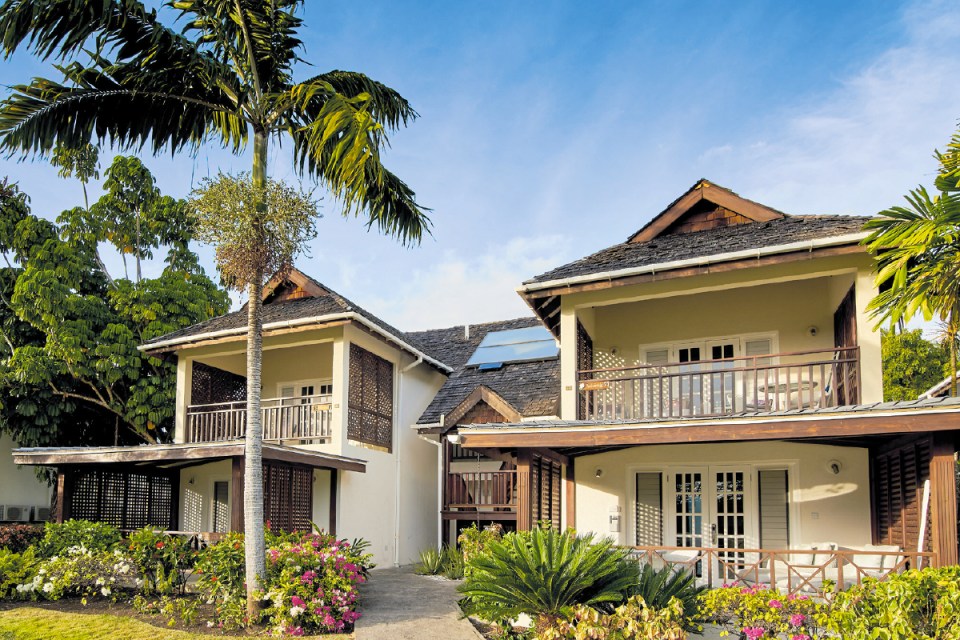Why Grenada is the off-the-beaten-track side of the Caribbean

The West Indies, one of the world’s most beautiful places, is still relatively untouched by tourism. A crescent-shaped group of islands separating the Gulf of Mexico and the Caribbean Sea, the region is often referred to as the Caribbean, although, strictly speaking, the Caribbean also includes the coastal regions of North, South and Central America. The islands that make up this cluster are hugely diverse, from the wealthy, developed tax haven of Grand Caymen, to smaller one-town destinations inaccessible to anything other than boat. Grenada is one of the smaller islands, located near the coast of South America (opposite Venezuela). Like all the islands across the Caribbean Sea, it has its own identity, one the Garbutt family has worked hard to build into the fabric of their family-owned and run hotel, Calabash.
Grenada: Building a legacy
I arrived at the hotel on a typical Caribbean day, hot and humid, but the hotel, located near the sea, was a cool oasis. Laid out as a half-moon group of villas around a garden looking out to the sea, the family has owned the hotel since 1987.
As the story goes, Leo Garbutt was asked to visit Grenada by a friend who wanted to purchase the River Antoine Rum Distillery on the island. Whilst there, he met Lilian Ramdhanny, who became his wife in 1986. While on the island, they stayed at Calabash for the first time and decided, a year later, to buy it.
Over the following decades, the couple developed the property, building on its existing foundations and bringing their daughters, Adèle, Beth and Bobbie, into the business. Today, Calabash is truly a family business, and that shows through in the details and quality of the hotel.
I stayed in one of the hotel’s Pool Suites, looking out across the garden over the Caribbean sea. Through double doors at the back of the room, I had access to my own private plunge pool, while at the front, I had a balcony to sit and enjoy the Caribbean evenings.
Calabash: A foodie destination
Grenada itself is working hard to develop a reputation in the Caribbean tourism industry, and it’s undoubtedly been helped by Calabash’s efforts to establish itself as a foodie destination.
In the early 2000s, the hotel opened the Rhodes Restaurant in partnership with TV chef Gary Rhodes. Since then, it has built on its culinary credentials with the addition of its Beach Club and Nori, its poolside Japanese restaurant. I dined at the Rhodes Restaurant twice during my stay, sampling some of the island’s best seafood. The restaurant and its chef take their inspiration from the eponymous founder, but they’ve since developed and enhanced the menu to showcase the island’s produce and, of course, its spices.

While the Rhodes Restaurant is set back from the sea in the main body of the hotel, the Beach Club is located on… well, the beach. It’s here that I ate breakfast every day with the cool breeze of the Caribbean sea sweeping through the open dining area. The menu is a mix of Western fare as well as Caribbean favourites such as saltfish.
Calabash and its family owners have worked hard to bring hotel guests every comfort, and they’re also working hard to include island experiences. I was able to sample the traditional Grenadian dish ‘oil down’, a one-pot stew made with coconut milk, vegetables, and protein cooked by the self-proclaimed “best oil down chef on the island,” cooked at his home. Made with key ingredients picked fresh from his garden farm and packed full of Caribean spices, fruits and vegetables, it’s a stone cold success. Known as a ‘spice island’ for its role in the spice trade, Grenada’s terroir plays its role, too: nutmeg is so common here its shells are used to make paths and roads.
The Caribbean sea
The highlight of a trip to this unspoilt destination is the sunset cruise. Out of the main harbour and down the coast, the trip blended everything the Caribbean is known for into one: hospitality, sun, sea, beautiful views and rum. Sailing into the sunset while sipping on a rum cocktail is something everyone should savour once, especially if you can do as I did when everyone back in the UK is stuck at work on a rainy Monday afternoon.
The sea is the lifeblood of the Caribbean, and Grenada has invested heavily in its ocean-based tourism over the past two decades. The island’s underwater sculpture park, the first in the world when it was constructed in 2005, has been instrumental in driving the growth of the diving industry. While I’ve never called myself a diver, a trip below into the ocean to see the statues was breathtaking, even if the weather didn’t cooperate.
Calabash is a hidden gem on Grenada and a perfect hideaway from which to explore this lesser-known side of the Caribbean. While it’s not exactly easy to get to (flights are at least ten hours without connections), the journey is absolutely worth the effort. Travellers can participate in a range of once-in-a-lifetime experiences across the island before returning to the unrestrained luxury of Calabash and its family-based team.
For those who don’t want to explore, the hotel’s range of restaurants and onsite activities provide something for everyone, from paddleboarding to cooking classes. Calabash and the island surrounding it is unlike anywhere else in the world.
BOOK THIS: Rupert stayed at the Calabash Hotel, an award-winning Relais & Châteaux luxury boutique hotel. Rates start from $800 (approx. £630) per night, including breakfast and private airport transfers.
